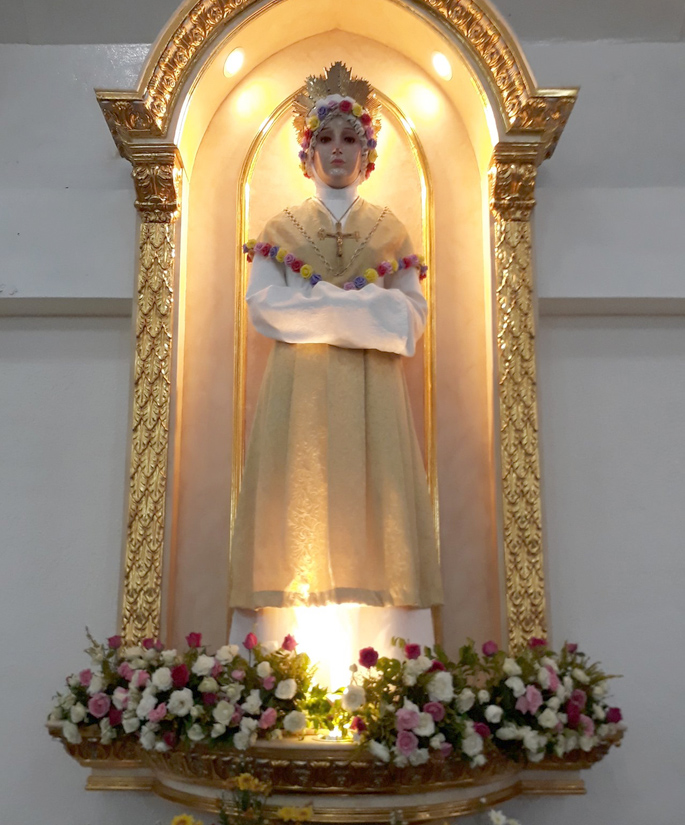Her Message
The Beautiful Lady told the little cowherds: If my people will not submit, I shall be forced to let fall the arm of my Son. It is so strong, so heavy, that I can no longer withhold it. I have long suffered for you! If I would not have my Son abandon you, I am compelled to pray to him without ceasing; and as to you, you take not heed of it. However much you pray, however much you do, you will never recompense the pains I have taken for you. Six days I have given you to labor, the seventh I have kept for myself; and they will not give it to me. It is this which makes the arm of my Son so heavy. Those who drive the carts cannot swear without introducing the name of my Son. These are the two things which make the arm of my Son so heavy. If the harvest is spoilt, it is all on your account. I gave you warning last year with the potatoes (‘pommes de terre’) but you did not heed it. On the contrary, when you found the potatoes spoilt, you swore, you took the name of my Son in vain. They will continue to decay so that by Christmas there will be none left.The beautiful lady addressed them in French. But seeing that Mélanie had a problem with the word “potatoes,” she stopped, saying, “Ah, my children, you do not understand? Well, wait, I shall say it otherwise.”
Orędzie Pięknej Pani
Piękna Pani powiedziała do pastuszków po francusku: Jeżeli mój lud nie zechce się poddać, będę zmuszona puścić ramię Mojego Syna. Jest ono tak mocne i ciężkie, że dłużej nie mogę go podtrzymywać. Od jak dawna cierpię z waszego powodu! Chcąc, by Mój Syn was nie opuścił, muszę Go nieustannie o to prosić, a wy sobie nic z tego nie robicie. Choćbyście się nie wiem jak modlili, nie wiem, co robili, nigdy nie zdołacie wynagrodzić trudu, którego się dla was podjęłam. Dałam wam sześć dni do pracy, siódmy zastrzegłam sobie i nie chcą mi go przyznać. To właśnie czyni ciężkim ramię Mojego Syna! Również woźnice przeklinają, mieszając z przekleństwami imię Mojego Syna. To są dwie rzeczy, które czynią tak bardzo ciężkim ramię Mego Syna. Jeżeli zbiory się psują, to tylko z waszej winy. Pokazałam wam to w roku ubiegłym na ziemniakach. Wy jednak nic sobie z tego nie robiliście. Przeciwnie, kiedy znajdowaliście zgniłe ziemniaki, przeklinaliście mieszając z przekleństwami imię Mojego Syna. Będą się psuły nadal, a tego roku na Boże Narodzenie nie będzie ich wcale”. Słowo „pommes de terre” wprawia w zakłopotanie Melanię. W gwarze, której się używa w tej okolicy, na ziemniaki mówi się „las truffas”. Pasterka zwraca się więc do Maksymina… ale Piękna Pani ją uprzedza: „Nie rozumiecie tego, moje dzieci? Zaraz powiem wam to inaczej”.

